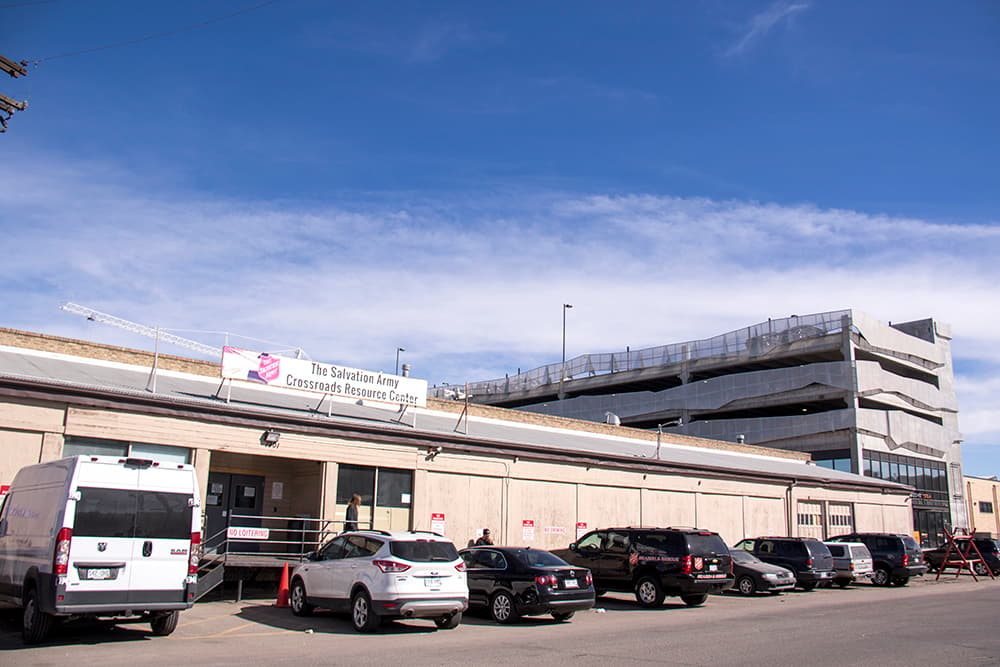
Major changes are in motion for the Salvation Army's Crossroads Shelter off Brighton Boulevard.
The building needs repairs in the hundreds of thousands of dollars for significant safety problems identified by the city of Denver. That leaves Salvation Army with a big decision: Tear the place down and rebuild it – or sell the valuable River North property and move the shelter.
"The plan right now is to proceed as if we’re going to rebuild Crossroads – tear it down and rebuild it," said George Hood, a spokesman for the organization. "But if an offer comes along of a developer that wants that property, and the price is right, we would entertain it."
Recent property sales indicate that it could fetch a very high price indeed. A nearby gas station sold for $4.5 million in 2015, or about $77 per square foot. At that rate, the Salvation Army's property at 1901 29th Street could be worth nearly $4 million.
The building, if you missed our earlier coverage, is 64 years old and until recently was crowded each night with some 650 men seeking shelter, making it the largest by number in the city.
The city identified a number of safety issues, so the Salvation Army has reduced that cap to 476 people and already has repaired fire sprinklers in the building, Hood said.
However, it would cost significantly more to replace the portable toilets it's using inside the building, among other issues. The Salvation Army likely will pursue a total rebuild instead of a renovation, Hood said.
"It’s very difficult to maintain a homeless shelter. You can see just from walking the streets around any of the shelters that are operating - you see the people who aren’t the cleanest and the healthiest people," he said.
"The occupancy alone does damage to an old, old building. When we have 500 or 600 men sleeping on mats on the floor, it’s not a pretty environment."
The nonprofit hopes to start construction on a new facility by 2019, he said. "Our commitment to the homeless issue is solid - and as long as the city and us work together, hand in hand, we’re ready to tackle this big monster to demolish and rebuild."
Will the city help?
Crossroads is owned and operated by Salvation Army, but the city government provides some money each year (about $915,000 in 2016) to operate the place. Salvation Army already has asked for the city to help with the shelter rebuild, which could cost $12 to $15 million, Hood said.
"We want city money. We hope that they come around and are able to give us some financial help as we work in partnership with them," he said.
The city hasn't publicly committed to any funding assistance yet.
"The Salvation Army has been an incredible partner with the City in serving our most vulnerable people for years," wrote Councilman Albus Brooks in an email.
"I support the Salvation staying in their current location, as long as the building serves the desired need. If they are looking to expand or look for better facilities I think it is critical to work with the city to locate near the new shelter that Denver is looking to buy, so we may leverage (...) new opportunities for the homeless." (The city council recently approved the $4.5 million purchase of a shelter site at I-70 and Colorado Boulevard.)
Julie Smith, a spokeswoman for Denver Human Services, wrote in an email that city staffers "are partnering with them to determine how the city might best support this effort."
No matter where the shelter ends up, Salvation Army wants to offer a program that offers both short-term shelter and a focus on long-term support and recovery, Hood said.












